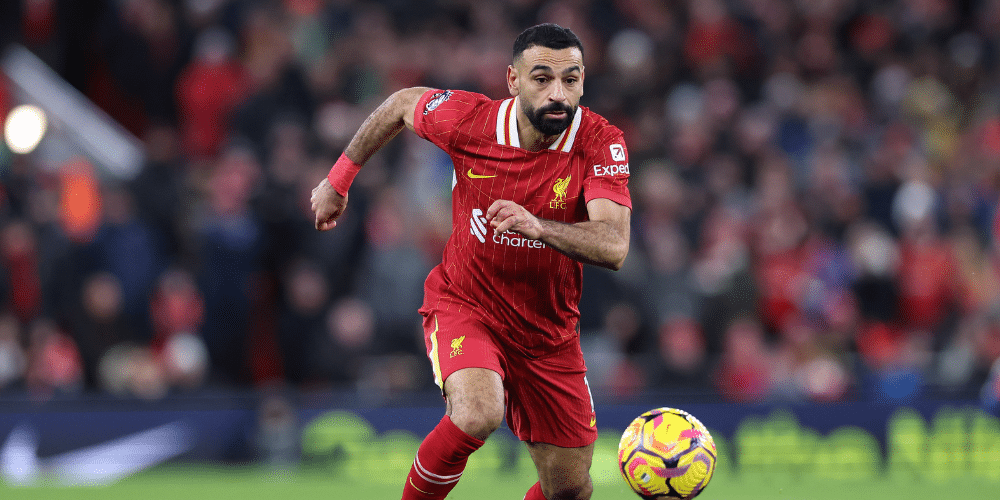Sports
Harrison Butker’s Speech Undermines The Power Of Sport As A Platform For Equity

KANSAS CITY, MISSOURI – JANUARY 19: The Kansas City Chiefs helmet logo is seen on the field before … [+]
The controversial Benedictine College graduation speech delivered by Harrison Butker, a kicker for the Kansas City Chiefs, highlights a stark contradiction between the progress of empowerment achieved by women and girls through endeavors such as sport, and the persistence of regressive attitudes fueled by certain religious beliefs. Importantly, both the NFL and the Nuns of Benedictine College quickly distanced themselves from the speech and doubled down on their commitment to create inclusive environments across their respective organizations.
Butker’s remarks, laden with sexist and homophobic undertones, not only dismiss the achievements and aspirations of women but also promote a worldview that prioritizes traditional gender roles and heterosexual relationships over individual autonomy and equity. Critically, this speech contradicts the decades-long efforts of women and girls to expand their choices and opportunities in various spheres of life, including sports participation. Women across social segments, and especially women athletes, have fought tirelessly to challenge societal norms and systemic barriers that limit their autonomy and perpetuate gender inequality. Yet, Butker, an athlete counterpart to these women, serves as a reminder of the persistent challenges faced by women and girls in their pursuit of equity, particularly in environments where traditional gender roles are upheld and reinforced by religious conviction.
By asserting his religious principles as justification for denigrating career women and LGBTQ+ individuals, Butker exemplifies a sense of entitlement that privileges his own beliefs while disregarding the diverse perspectives and lived experiences of others, including those across sport spaces. Privilege often remains invisible to those who possess it, and Butker’s entitlement in delivering such a speech starkly contrasts with the experiences of marginalized athletes. Athletes hailing from underrepresented communities have historically faced greater scrutiny and resistance when expressing their outrage, not their outrage towards the empowerment of women as Butker did, but towards social injustices that seek to generate positions of greater equity for all. For Butker, however, this privilege is not solely derived from his identity as a white, heterosexual man but also from his capacity to cloak discriminatory perspectives within a particular interpretation of religious scripture and through his limited status as a kicker in the NFL.
Sport And Society
Through sports, women and girls have found platforms to challenge stereotypes and outdated perceptions about gender roles. Historic developments such as Title IX in the United States, enacted in 1972, have played a pivotal role in advancing gender equity in sports by prohibiting gender-based discrimination in federally funded educational programs, including athletics. This legislation catalyzed a seismic shift in women’s sports participation, leading to increased opportunities, funding, and recognition for women and girl athletes. Similarly, other movements within sports, such as the rise of feminism and the women’s suffrage movement, have paralleled and have collectively propelled societal shifts towards gender equity. As a result, the struggle for equitable rights in sports mirrors the broader fight for women’s rights in society, with victories in one realm often reinforcing progress in the other.
UNIVERSITY PARK, PA – MARCH 20: The National Championship trophy is seen alongside an ad board for … [+]
Butker, who was provided with the speaking opportunity based on his athletic career, diminished an industry such as sport as a mechanism of empowerment for women and girls. As a professional football kicker, Butker is publicly tied to the sports industry, making his words reflective of that same industry; and despite the historical role of sports in the advancement of women and girls, Butker’s remarks reinforced outdated perceptions about gender roles and the power of choice women and girls have fought to obtain, throughout sport and beyond. While progress towards embracing powerful women and girls in other segments of society may be slower, the impact of the sport industry in shaping societal views and attitudes towards gender empowerment remains significant and enduring.
Sport and Empowerment
An athlete with opinions such as Butker’s reflect a disconnect between the progressive values often associated with sports and the regressive attitudes prevalent in certain religious communities. This dissonance underscores the complex intersectionality of gender, religion, and sports, highlighting the ongoing struggle to reconcile competing ideologies and promote inclusivity and equity for all. Sport has often served as a space that outpaces societal norms in embracing the power, authority, and leadership of women and girls. Sport has also served as a platform for women and girl athletes to showcase their talent, resilience, and leadership, challenging stereotypes and inspiring future generations.
The history of women’s rights in sports offers valuable insights into the ongoing struggle for gender equity in society at large, demonstrating the interconnectedness of athletic, political, and social movements in shaping the status and rights of women and girls. Butker’s actions exemplify the enduring challenges faced by women and girls in their quest for autonomy and equity, particularly in the face of religious beliefs that perpetuate gender norms and discrimination. As society continues to grapple with issues of gender equity and religious freedom, it is imperative to confront and challenge attitudes and behaviors that undermine the rights and dignity of women and marginalized communities.
Privilege is Invisible
As a white, heterosexual man, Butker enjoys a level of privilege that allows him to freely express his opinions without facing the same scrutiny and backlash as marginalized athletes, particularly Black women athletes. While athletes like those in the WNBA and professional women’s soccer are often told to “stick to sports” when they advocate for social justice, Butker used his platform to promote harmful gender norms, suggesting women should regress while men reclaim their masculinity.
PALMETTO, FLORIDA – AUGUST 26: The Atlanta Dream, Washington Mystics, Minnesota Lynx, and the Los … [+]
This discrepancy in how athletes’ voices are received is especially glaring in light of recent activism within the WNBA during the COVID-19 pandemic. WNBA players, confined to a “wubble,” used their platform to advocate for racial justice, gender equity, and LGBTQ+ rights. They faced criticism and pressure to “shut up and dribble,” yet persisted in their fight for equity both on and off the court, risking their athletic careers and livelihood in the process. Similarly, the members of the US Women’s National Soccer Team were recently embroiled in a legal battle for equal pay, highlighting the ongoing struggle for gender equality in sports. Despite their tremendous success on the field and more equitable negotiations, the USWNT continues to face discrimination in terms of compensation and resources compared to their men counterparts.
Meanwhile, Butker’s speech reflects a failure to recognize the privilege inherent in his ability to freely voice prejudiced perspectives without facing significant repercussions. While professional women athletes continue to use their platforms to advocate for social change and challenge systemic inequalities, Butker utilized his athletic platform to discriminate.










